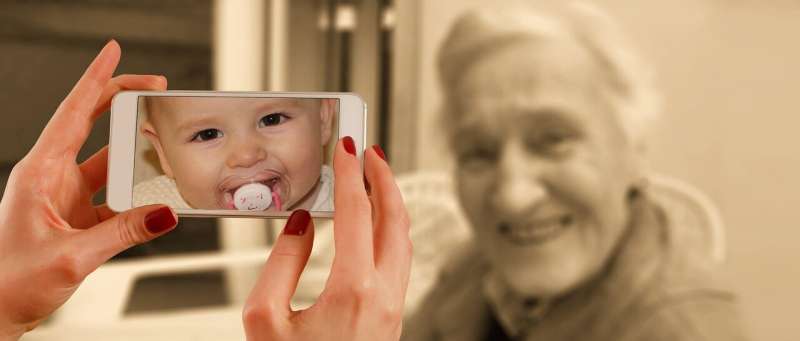Are we the same person throughout our lives? In essence, yes

A psychobiological study led by the Complutense University of Madrid (UCM) on personal identity and its modification over time in parallel with the changes that individuals experience has shown that the essence of our being remains largely stable over the years.
"In our study, we tried to answer the question of whether we are the same person throughout our lives. In conjunction with the previous literature, our results indicate that there is a component that remains stable while another part is more susceptible to change over time," explained Miguel Rubianes, a researcher at the Department of Psychobiology and Behavioural Sciences Methodology at the UCM and the Centre for Human Evolution and Behaviour (UCM-ISCIII).
The 'continuity of the self'—the capacity for self-awareness and self-recognition— remains stable whereas other components such as physical aspects, physiological processes and even attitudes, beliefs and values are more liable to change.
Even components such as personality traits tend to change slightly over the years, but "the sense of being oneself is preserved, improving our understanding of human nature," according to Rubianes.
The study, published in Psychophysiology, also determined how long it takes the brain to recognize our own personal identity as distinctive compared to others: around 250 milliseconds.
Potential application in the diagnosis of mental illness
To carry out this study, the brain activity and event-related brain potentials of twenty participants were recorded by electroencephalography (EEG) when presented with stimuli and performing identity and age recognition tasks.
The question of human nature and the basis of the self has been asked since the beginnings of philosophy and has been the subject of research in various disciplines, including anthropology and psychology.
According to the UCM researcher, alterations in the perception of the self may underlie various personality disorders such as bipolar disorder and narcissistic personality, and even other mental illnesses such as schizophrenia and depression.
As regards the applications of these results, "This demonstrates the importance of basic and clinical research alike in the study of the role of personal identity, as this promises to be a much more important concept than was previously thought and may play a fundamental role in psychological assessment and intervention processes," concluded Rubianes.
More information: Miguel Rubianes et al, Am I the same person across my life span? An event‐related brain potentials study of the temporal perspective in self‐identity, Psychophysiology (2020). DOI: 10.1111/psyp.13692




















